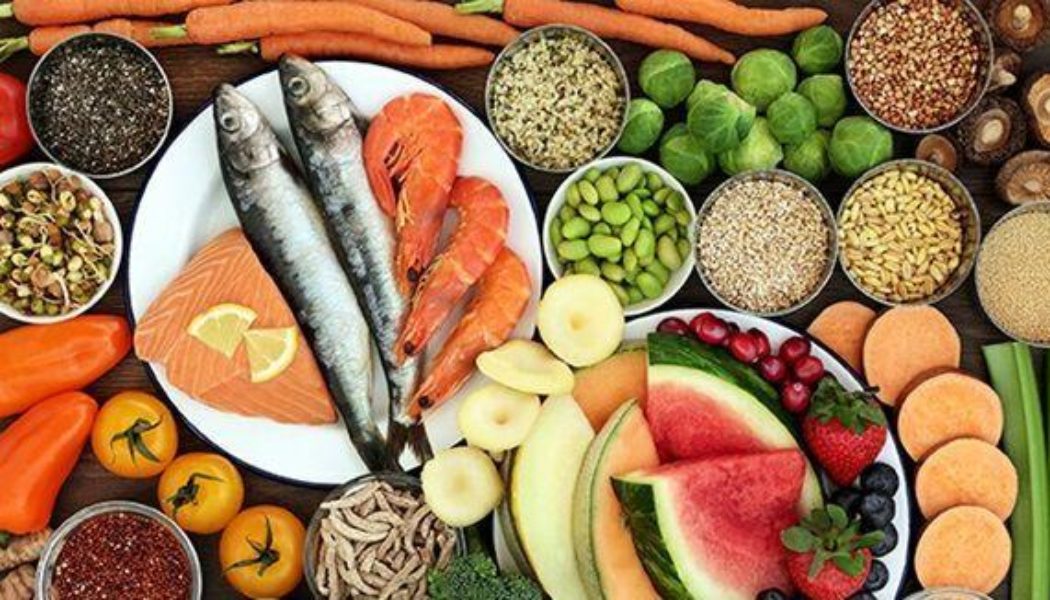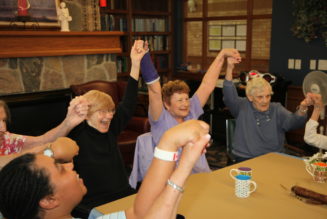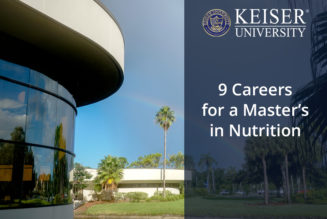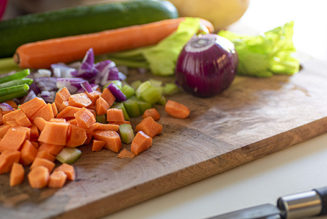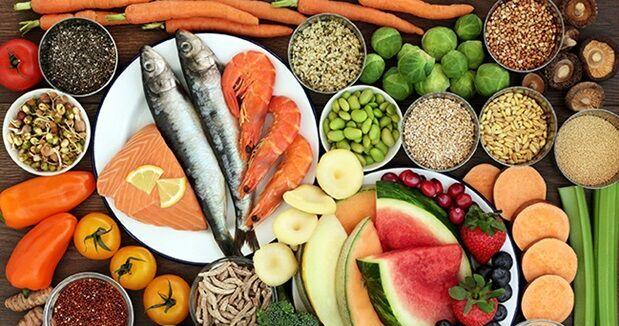
It’s all related
March is both National Nutrition Month and Colon Cancer Awareness Month. These are separate observances, so what do healthy eating and cancer have to do with one another? More than you might think.
According to the Department of Health and Human Services, “About half of all Americans have one or more preventable diseases, many of which are related to poor eating patterns and physical inactivity.”
Good nutrition can help reduce the risk of various diseases, including some cancers, cardiovascular disease, high blood pressure, type 2 diabetes and poor bone health, among others.
Preventable and curable
Colorectal cancer (cancer found in the rectum and colon) is the second-leading cause of cancer-related deaths among women and men combined. The COVID-19 pandemic initially resulted in most elective procedures being put on hold, leading to many people not getting screened for cancer. (If you are undergoing cancer treatments or you are a cancer survivor, be sure to stay up-to-date against COVID with the bivalent vaccine).
People are also reading…
While rates of colorectal cancer have been declining among adults 50 years and older, incidence of colorectal cancer is increasing among adults under age 50. The risk of colorectal cancer increases with age, but while most colorectal cancers are found in people over age 50, one in five colorectal cancer patients are between 20 and 54 years old and 30% of colorectal diagnoses are under age 55.
That said, it is preventable through early screenings. In fact, everyone 45 and older is encouraged to have a colonoscopy. Those with a family history of colorectal cancer should talk to their doctor about being screened earlier than age 45. If you are at average risk and between ages 45 and 75, you can pick up free screening kits March 1-31 at a number of local pharmacies. For a list of them and more information, visit lincoln.ne.gov, keywords: colon cancer, and also check out the LNKTV Health YouTube channel.
March is also National Nutrition Month
Prevention is key to lowering the risk of colon cancer – and good nutrition is an important element in the prevention strategy. The National Academy of Dietetics and Nutrition provides these tips and how to eat healthy:
• Include a variety of healthful foods from all food groups on a regular basis (especially fresh fruits and vegetables).
• Select healthier options when eating away from home.
• Be mindful of portion sizes. Eat and drink the amount that’s right for you. MyPlate (choosemyplate.gov) is a helpful guide.
• Choose healthy fats. A nutritious eating plan doesn’t mean cutting out all fat – just focusing on healthier varieties like salmon, nuts, avocados and flaxseed. See more at eatright.org
Rethink your drink
Sugar-sweetened beverages are associated with increased colorectal cancer mortality. Sugar essentially feeds tumors and encourages cancer growth. Cancer cells uptake sugar at 10-12 times the rate of healthy cells. Regular sodas, energy drinks, sports drinks, fruit flavored drinks and even 100% fruit juice are significant sources of sugar and are empty calories in our diet. Swap out a daily sugar-sweetened drink for water and an apple and add a daily walk, and you’ll save thousands of calories a year, and be healthier.
Access to healthy food
Various community organizations around Lincoln are working to supply healthier food options where there is limited access and provide education on healthier cooking at home. Here are just a few:
• Double Up Food Bucks is a program of the Nebraska Extension Nutrition Education Program (food.unl.edu/nutrition-education-program), in partnership with Community Crops (communitycrops.org) and with support from Partnership for a Healthy Lincoln. The program works to improve healthy food access and provide nutrition education to help those with limited resources find, afford and incorporate fresh produce into their diets. The program provides a dollar-for-dollar match on qualifying purchases to help recipients afford fresh produce.
• Matt Talbott Kitchen & Outreach (mtko.org) supplies nutritious meals for those in need, incorporating vegetables and herbs from its own garden, and offering garden-fresh produce to guests as well.
• Partnership for a Healthy Lincoln’s (HealthyLincoln.org) WeCook program teaches youth basic and nutritious food preparation that also incorporates physical activity in several after-school programs around Lincoln. Its Harvest of the Month program – offered in collaboration with Green School Farms (greenschoolsfarms.com), Buy Fresh Buy Local (buylocalnebraska.org) and the Nebraska Department of Education (education.ne.gov/ns/farm-to-school/harvest-of-the-month) – teaches children in school and pre-school programs about the science of growing, allowing kids to taste-test fresh local produce, many for the first time.
• Healthy Food Access is a collaborative project between Community Action Partnership (communityactionatwork.org) and the Food Bank of Lincoln (lincolnfoodbank.org) to increase access to healthy foods in Lincoln, particularly for children living in the city’s highest-needs neighborhoods. It was made possible by the Community Health Endowment of Lincoln (chelincoln.org) in celebration of its 20th anniversary in 2018. The project includes a commercial kitchen used to prepare healthy meals for the Kinder Bites program and child care providers around Lincoln. Community Action’s FEAST program teaches families healthy cooking on a budget. During operational months, the Food Bank’s Lincoln Fresh van delivers up to 3,000 lbs. of free fresh produce to high-poverty neighborhoods every week.
For a healthy March and a healthy life, prevention is worth a pound of cure – eat right, rethink your drink, be active, stay up to date on vaccinations and get screened for colon cancer.
Partnership for a Healthy Lincoln (HealthyLincoln.org) and LNKTV Health (LNKTV.lincoln.ne.gov) bring you Health and the City, a monthly column that examines relevant community health issues and spotlights the local organizations that impact community wellness. Direct questions or comments to jpearsonanderson@healthylincoln.org.
